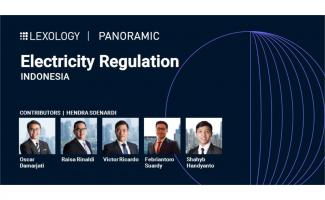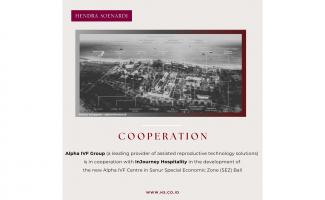View file in pdf version
Written by:
Oscar Damarjati | Yohanes Memory M. Sa’pang | Nadya A Pattiasina | Bhre Cakrahutomo
Introduction
This is the opening of our series of articles in relation to the enactment of Law Number 11 of 2020 on Job Creation (“Job Creation Law”). For ease of reference, you are welcome to access our General Overview of the Job Creation Law by clicking the following link: https://hs.co.id/omnibus-law-on-job-creation-119
In this article, we would like to address in brief, several key changes to Law Number 13 of 2003 on Manpower (“Manpower Law”) and the newly introduced feature of Job Loss Security in Law Number 40 of 2004 on the National Social Security System (“National Social Security System Law”).
In addition, the Job Creation Law explicitly mentions that certain matters shall be regulated further in the Government Regulation (“GR”) which has not yet been issued, as at the time of writing this article. Therefore, we also comment here on issues that may be covered in the upcoming GR.
1. Foreign Workers
Main changes
- A Foreign Worker Employment Permit (“IMTA”) is no longer required. It leaves a Foreign Worker Employment Plan (“RPTKA”) as the only document that must be obtained by the employer from the Ministry of Manpower prior to employing a foreigner. This is consistent with the policy that has been implemented since 2018 by the issuance of Presidential Regulation Number 20 of 2018 on the Utilization of Foreign Workers and Minister of Manpower Regulation Number 10 of 2018 on the Procedure of Utilization of Foreign Workers.
- An exemption to obtain an RPTKA applies in the event the foreign worker: (i) holds a position in the company as a director or commissioner with certain shareholdings, or (ii) is employed in Indonesia in certain circumstances (i.e. the production activities have stopped due to an emergency, employed by a tech start-up company, a vocational job, business visits, conducting research, etc.).
Future possibilities
- Further implementation of the utilization of foreign workers will be regulated under a GR. It is expected that the GR will resolve many outstanding practical issues or at least set out clear guidance for the Ministry of Manpower in issuing the Minister Regulation.
- It would be ideal if the GR were to at least address the following issues: (i) the minimum shareholding percentages of the foreign director or commissioner in order to be eligible for the exemption to obtain RPTKA, (ii) whether the foreign worker who is eligible to work in Indonesia for a fixed period (on a temporary basis) may enjoy the benefits or protections given to fixed-term local employees (such as compensation for termination under Article 61A and 62 of the Job Creation Law), (iii) the possibility that foreign workers may be employed by more than one employer at a time, etc.
2. Fixed-term Employment Agreement / Perjanjian Kerja Waktu Tertentu (“PKWT”)
Main changes
- The provisions regarding the duration of a PKWT along with the mechanisms for extension and renewal of the PKWT has been revoked.
- In the past, the Manpower Law determined that the status of a PKWT by law changed into a Permanent Term Employment (“PKWTT”) where (i) a PKWT is not made in writing, (ii) a PKWT is made, extended or renewed in breach of the procedural requirements under the Manpower Law, and/or (iii) a PKWT is made for a permanent job/work. The latter is the only condition that still survives in the Job Creation Law.
- The Job Creation Law imposes a new obligation for employers to provide compensation to employees in the event that the PKWT ceases due to the expiry of the period of employment or upon completion of work.
Future possibilities
- The Job Creation Law has created uncertainty on the allowed initial term of a PKWT along with the term of its extension or renewal. This is one of the critical issues that must be clarified by the Government in the GR given that the mechanism which was widely known as “2-1-2” (2 years maximum for the initial term, 1 year maximum for one extension and 2 years maximum for one renewal), has been abolished.
- In addition, bearing in mind that the provisions enabling a PKWT to be converted by law into a PKWTT still exist, it would be preferable if the GR adopts Constitutional Court Decision Number 7/PUU-XII/2014 setting out the procedures that has to be followed by an employee who seeks such conversion, That process being an initial bipartite meeting, investigation by the Ministry of Manpower’ officers and a decree or decision from the relevant district court.
- In respect of compensation for termination of PKWT as an additional obligation imposed by the Government on the employer under Article 61A of the Job Creation Law, the Government should take care that this matter does not hamper investment in Indonesia. Ideally, the GR, as the implementing regulation, should at least address (i) the formula of compensation (e.g., whether the quantum is based on length of service), and (ii) the payment mechanism (i.e., whether it can be paid in several stages), etc.
3. Assignment of Work to Third Parties (Outsourcing)
Main changes
- Previously, the Manpower Law stipulated that the assignment of work to a third party may be conducted through (i) a contractor company namely as a pemborongan; or (ii) a labor provider company namely as outsourcing. The Job Creation Law revokes the route of pemborongan under the regime of the Manpower Law, leaving outsourcing as the only means for the assignment of work.
- Under the Manpower Law, the basic principles of outsourcing were: (i) the employee provided by the outsourcing company could not be utilized by the user to perform core activities or activities that are directly related to the relevant production process (ex-Article 66 para. 1), and (ii) the violation of the former caused the employee of the outsourcing company to by law become the employee of the user (ex-Article 66 para. 4). These basic principles are abolished by the Job Creation Law.
- Outsourcing is administered under article 66 of the Manpower Law. The Job Creation Law amends Article 66 and introduces a concept of the transfer of protection of employees’ rights. The concept being: where one outsourcing company on a fixed contract at contract’s end is replaced by a second outsourcing company on a new contract, then not only is the second outsourcing company obliged to take over the first outsourcing company’s workforce, but it must maintain their existing working entitlements. The adoption of this concept is in line with the Constitutional Court Decision Number 27/PUU-IX/2011.
Future possibilities
- First and foremost, to give certainty and avoid potential misunderstandings in the implementation of the outsourcing arrangements, it would be ideal if the GR would exhaustively list that the types of work which may be assigned by the user to the outsourcing company.
- Ideally, the GR will also set out more detailed mechanisms for the protection of employees of the outsourcing company.
4. Wages
Main changes
- The Job Creation Law introduces an exemption for Micro and Small Enterprises (Usaha Mikro dan Kecil) from implementing the obligation to pay minimum wages. The Job Creation Law explicitly states that the wages for employees of Micro and Small Enterprises shall be determined mutually between the employer and the employee.
- The Job Creation Law has revoked the provision under the Manpower Law allowing employers to suspend the payment of minimum wages to employees due to an inability of the employer to do so.
- The Job Creation Law also accommodates several Constitutional Court decisions by (i) emphasizing that in the bankruptcy or liquidation process of the employer, the payment of the employees’ wages shall take precedence over payment to other creditors; and (ii) deleting previous provisions regarding 2 (two) years expiry period for the employees to demand payment of their unpaid wages and all outstanding payments arising from their employment.
Future possibilities
The existing GR Number 78 of 2015 on Wages may be amended to address the exemption of paying minimum wages by Micro and Small Enterprises.
5. Termination of Employment and Package of Termination
Main changes
- Unlike the Manpower Law, which set out the grounds of termination with each ground having a termination compensation formula (i.e paying for 2 times or 1 time of the termination package), the Job Creation Law provides only the list of grounds of termination (which is non-exhaustive), with the termination compensation formula to likely be regulated in the upcoming GR.
- The Job Creation Law introduces additional grounds for the termination of employment (i.e. (i) the employer is under suspension of debt payment obligation, and (ii) the employer conducts a spin-off transaction (pemisahan).
- The Job Creation Law no longer stipulates housing and medical compensation (i.e., 15% of the total Severance Pay (Pesangon) and Service Appreciation Pay (Uang Penghargaan Masa Kerja) as one of the elements of the Restitution of Entitlements (Uang Penggantian Hak).
- The Job Creation Law introduces a new step in the termination of employment that employers must deliver a notification to the employee regarding its intention and grounds for the termination.
- The Job Creation Law also abolishes Article 154 and 155 (1) of the Manpower Law, which in essence provided that any termination conducted without approval from the Industrial Relations Court shall be deemed as null and void. However, the detailed impact of the deletion of these articles along with the introduction of the notification procedure as mentioned above, remains somewhat unclear, particularly in relation to determining the effective date of termination whether it would be effective by law from the date of such notification or pending to the date of or a date to be determined in the court decision when it becomes final and binding.
Future possibilities
Given that termination of employment is a complicated and sensitive issue, the GR will ideally provide clear guidance, bringing certainty and at a minimum addressing the following potential issues: (i) the termination compensation formula for each ground for termination, (ii) procedures and minimum content of the notification issued by the employer to the employee, (iii) procedures for paying termination compensation (pesangon) (i.e whether the employer may hold the payment until the employee returns in good condition all the equipment or assets of the employer, whether the employer may perform set off against termination compensation all debts and/or damages that are payable by the employee) and (iv) procedures for conducting a termination including the determination of the effective date of such termination.
New Type of Social Security: Job Loss Security
- Although the public will mainly focus on the amendment of the Manpower Law, it is also worth noting that the Job Creation Law also introduces a new social security benefit, namely Job Loss Security (Jaminan Kehilangan Pekerjaan) as regulated in the amendment of the National Social Security System Law and Social Security Administrator Law. This security is provided by the Manpower Social Security Administering Body (BPJS Ketenagakerjaan) to maintain a decent standard of living for an employee upon the termination of its employment. Every employee whose employment has been terminated will be entitled for the Job Loss Security. The benefits of this security would be given to the participants at a maximum of 6 (six) times wages in the form of cash, job market information access, and job training.
- This security will be administered by the Manpower Social Security Administering Body (BPJS Ketenagakerjaan) in line with the concept of social insurance, of which the contribution would be provided by the Government. The source of funding derives from (i) the government’s initial capital (modal awal pemerintah); (ii) re-composition of the social security program contribution (rekomposisi iuran program jaminan sosial); and/or (iii) operational funds of the Manpower Social Security Administering Body (dana operasional BPJS Ketenagakerjaan).
- As of now, it is still unclear whether there will be additional obligation(s) that will be borne by an employer and/or employee (e.g. deductions from wages) that will be imposed by the Government as contribution for funding this Job Loss Security.
- Further provisions with regard to Job Loss Security will be provided under an upcoming GR.
Conclusion & Remarks
In light of the explanations above, the key points are as follows:
- The Job Creation Law will fundamentally change the landscape of employment relations in Indonesia.
- The Job Creation Law imposes new obligation on the employer to pay compensation for the termination of PKWT under Article 61A of the Job Creation Law as well as benefits to be enjoyed by the employer, among others: (i) revocation of 15% of housing and medical compensation as one of the components to calculate the termination package, (ii) no obligation to prove the 2 years consecutive losses with audited financial reports as one of the grounds for termination, (iii) no obligation to pay a termination packages to an employee who has been declared guilty by a court decision of committing a crime, (iv) additional grounds of termination can be included in the employment contract, company regulation or collective employment agreement, and (v) exemptions from obtaining RPTKA.
- For employees, the Job Creation Law brings the benefit of (i) a new termination compensation under Article 61A of the Job Creation Law, (ii) assignment of protection of employees’ rights for employees of outsourcing companies, and (iii) the Job Loss Security benefits.
Despite the pros and cons, or questions of whether the force of the changes to the manpower sector is an earthquake or a tremor, it will be interesting to see how the changes are implemented through the implementing regulations (GR) which will further regulate the manpower sector. While these are seismic changes, the business sector will be the ultimate judge of whether these laws bring a new balance and stability to the business landscape in Indonesia.
We look forward to updating readers further on this topic once the implementing regulations are issued.
The writing of this article is also assisted by our associates, Andre Garcia and Jeremy Jordan.
Copyright © 2020 HS. All rights reserved.
Disclaimer:
The foregoing material is the property of Hendra Soenardi and may not be used or relied upon by any other party without our prior written consent. The information herein is of general nature and should not be treated as legal advice, nor shall it be relied upon by any party for any circumstance. Specific legal advice should be sought by interested parties to address their particular circumstances.



